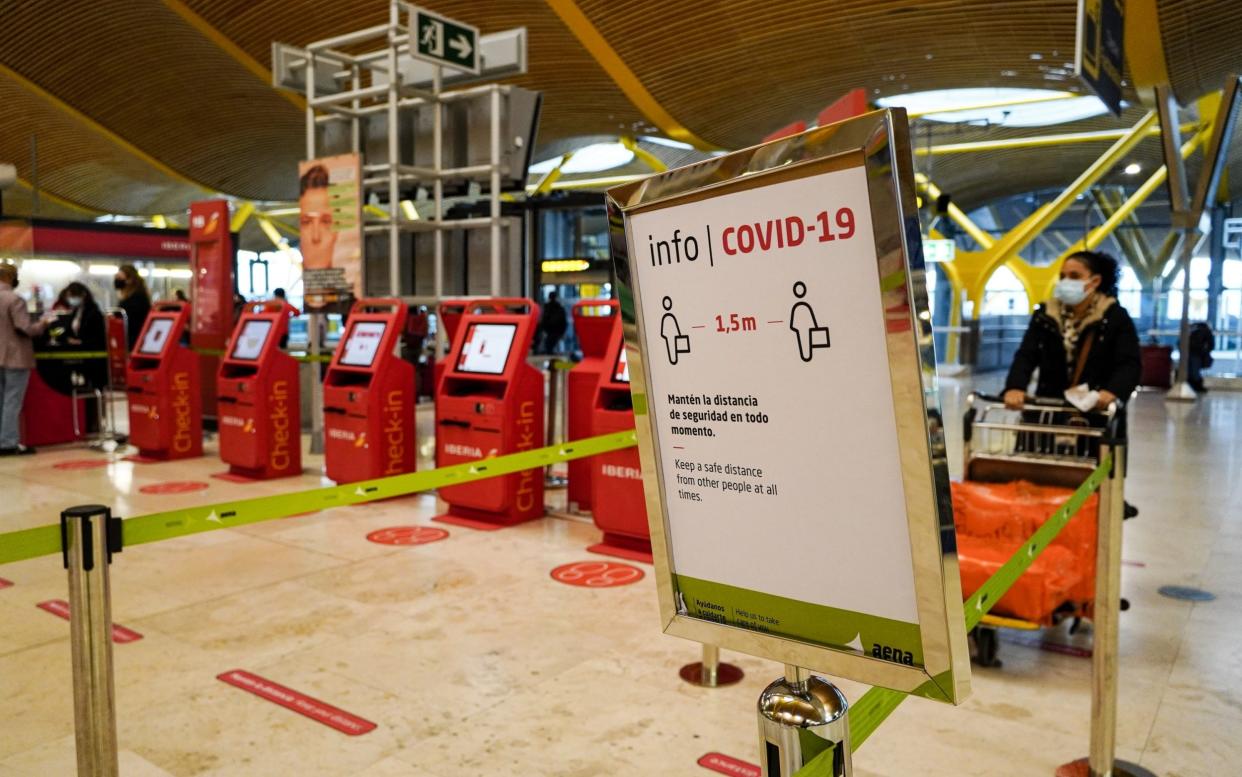Passengers to be banned from boarding flights to UK without negative Covid test


Airlines flying into the UK will be required to bar passengers from boarding if they do not have a negative Covid test within 72 hours of departure.
Every traveller coming into any UK port or airport will be expected to have a negative PCR test in order to enter the UK as part of a significant toughening of border controls.
It will cover all countries, including those with travel corridors under which peoples are currently exempted from quarantine on arrival in the UK.
Although the policy has yet to be finalised, it is expected that travellers coming from "red list" countries with high rates of Covid will still have to quarantine on arrival even if their 72-hour test is negative. Those required to self-isolate will be able to leave quarantine if a second test, which can be taken from the fifth day, proves negative.
All arrivals will still have to fill out the passenger locator form and will be liable to £10,000 fines if they breach their quarantine.
Watch: New apps make COVID-19 vaccine passports possible for travel
Thomas Cook, Tui and Virgin Holidays confirmed on Tuesday that they have cancelled their flight schedules until mid-February. All three operators will refund customers or allow them to reschedule their flights for later in the year amid what Virgin called "extraordinary circumstances".
The moves to tighten restrictions follow criticism of the failure to close borders at the start of the pandemic on the eve of the first lockdown. There are also concerns about the risks from new strains of the virus, in particular the South African variant which some scientists fear could limit the effectiveness of current vaccines.
Britain banned direct flights from South Africa just before Christmas and required new arrivals to undergo a stricter form of quarantine. Those travelling from the country indirectly, however, had not been required to prove they do not have the coronavirus before entering the UK.
The new policy was being finalised on Tuesday by transport department officials and is expected to be unveiled in the next 48 hours.
Boris Johnson confirmed the plans on Tuesday night, telling reporters: "In protecting the UK from transmission from abroad, we will bring in measures to ensure that we test people coming into this country and prevent the virus from being readmitted."
Henry Smith, the Tory MP who chairs the all-party Future of Aviation group in Parliament, said it was a "sensible" measure to provide reassurance on public health grounds, adding: "It will help build confidence in air travel if the testing regime is more robust. It is better than closing down flights from around the world."
Paul Charles, the chief executive of travel consultancy the PC Agency, said such a testing regime effectively replaced the need for the travel corridor policy but he warned that it needed to be time-limited.
"This has to be a policy that has an end point, otherwise it will put people off flying," he said. "It has to be removed once vaccination is fully up and running."
Watch: What you can and can't do during England's third national lockdown

 Yahoo News
Yahoo News 
